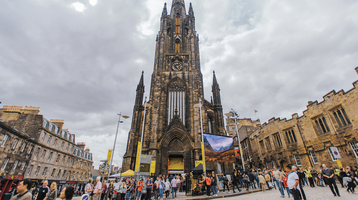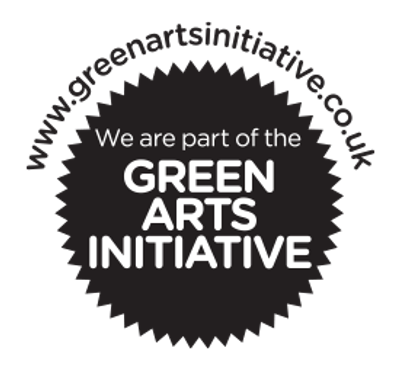
Sustainability
About UsSustainability
Our Strategic Pathway towards Net Zero
We are so proud of the role we play in enabling audiences from across the world to discover thrilling performing arts at the Edinburgh International Festival, yet we recognise that the international nature of our work has an environmental impact. That’s why we have embedded sustainable initiatives at the heart of everything we do to help create a brighter future for Scotland and beyond.
Our ambitious targets are driven by an urgent need for global change and our desire to be recognised as an industry leader in sustainability.
Whilst we still have a lot of work to do, we are implementing systems that align to British Standards Institute’s (BSI) Net Zero Pathway, of which we are the first charity in the UK to be certified.
This includes annual reporting processes that are written to ISO 14064-1 Standard. It also means that we have refreshed our Sustainability Strategy to ensure it meets the required standards, whilst being both rigorous and achievable.
Monitoring and Auditing
We commit to rigorous monitoring and auditing of our plans adhering to BSI's Net Zero Pathway.
Our Sustainability Strategy will be reviewed regularly to ensure that we are meeting our objectives. We have built in 5 yearly evaluation periods in the acknowledgement that technology, innovation and policy will evolve rapidly, and our Strategy will have to do likewise to stay on track.
We will continue to report annually to Culture for Climate Scotland, City of Edinburgh Council and Creative Scotland. Reporting will be conducted to ISO14064-1 standard and shared through our Financial Reports.
Contact Us
Our Sustainability Strategy is a live discussion, and we are always striving to improve our approaches to ensure sustainability sits at the heart of all our work.
We have made every effort to set ambitious but achievable goals. However, underpinning the strategy is an acknowledgment that we cannot achieve this alone. We welcome collaboration and advice and endeavour to share learning with others as we progress towards Net Zero.
If you have any questions, suggestions, or opportunities please contact us at [email protected]









